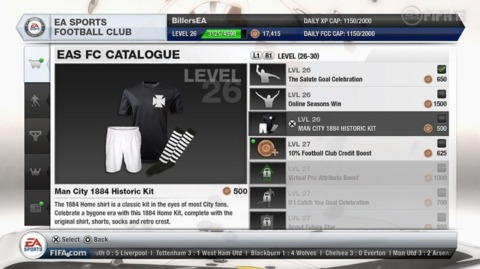Games-as-a-Service Does Disservice to Gamers
An always-online, microtransaction-driven, free-to-play future will lead to an unimpressive diversity of disposable experiences.
Electronic Arts COO Peter Moore believes that a decade from now, all games will use a free-to-play business model. It's a logical continuation of EA's recent approach to treat games as a service. No longer is the interaction between the purchaser and the publisher limited to a single transaction in a retail store. Now that purchase is only the beginning of a longer relationship, one that involves online communities, downloadable content, mobile apps, and micropayments.
Before the Internet, the industry looked at games as traditional products, physical things that customers would purchase for $50. Once the game was sold, that was the end of the transaction; enjoy your game, see you next sequel. The publisher could impact your experience with it no more than IKEA can make its book cases suddenly capable of surviving a move from one corner of the room to another. But with high-speed online inching closer to a ubiquitous asset that all customers are assumed to have, the perception of games is shifting from a product to a service.
Clearly, there are benefits to this. Online multiplayer modes are richer and more streamlined than ever before. Bugs and exploits can be fixed with patches. New modes and features can be added with regular updates. User-generated content can be shared with others, fostering communities around all manner of games.
But a lot of the drawbacks are just as clear. The games-as-a-service approach has introduced the hobby to gold farming, criminal fraud, bait-and-switch practices, absurd DLC schemes, games that ship in an incomplete state, and games that will someday cease to exist.
It's no wonder publishers still love the idea, because it gives them an unprecedented level of control over the player experience, for better or worse. It lets them monitor multiplayer matches to make sure no one is using cheats or playing with a pirated copy. It lets them turn their most devoted customers into cash cows, milking them for far more than the $50 they would have been limited to in the past. It could let them eliminate secondhand console game sales the same way they did with PC titles. On top of all that, games-as-a-service gives the publisher a plug it can pull when it decides the cost of keeping the servers up and running outstrips its desire to stay in the remaining players' good graces. This makes the games ultimately disposable, while making the publishers utterly indispensable and inseparable from the games they sell.
Drawbacks aside, there can be no argument that there is a place for the games-as-a-service approach. But in the gaming industry Moore is foreseeing, games-as-a-service is the only approach. That's a problem, because there are plenty of games that don't lend themselves to an always-online, multi-screen, free-to-play experience. Free-to-play games work because a minority of the player base foots the bill for everyone, whether they play a lot or a little. In theory it's a system of proportionate payment, where those deriving the most enjoyment from the game are likely to be spending the most money, while those who play for five minutes and get bored of it won't have been made to spend $50 to find out it's not their cup of tea.
In practice, the free-to-play approach inextricably links the business model with the game design. The foremost concern when making a free-to-play game must be how it will make its money back. That can be accomplished in a number of ways (League of Legends does it quite differently than CityVille, for instance), but it ultimately puts financial consideration ahead of the creative aspiration. Personally, I'd rather have the Shigeru Miyamotos of the world choose games based on what they're inspired to create, not on which projects they think can be adapted to a viable business model to maximize average revenue per paying user.
For an example of how having a business model artificially limits the variety of games, take a look at arcades. In order to make their money back, arcade games needed to keep gamers plugging in quarters every few minutes. At their height, arcades featured a wide variety of games, but they were pretty much all built on short play sessions and steep difficulty. If all games were arcade games, how would we have ever wound up with Shadow of the Colossus, Final Fantasy VII, or The Elder Scrolls V: Skyrim? Could we ever lose ourselves in experiences like those if we needed to keep feeding in EA Fun Bucks paid for with Facebook Credits in order to progress?
While Moore's prediction is almost certainly erroneous in its absolute terms (there's no reason for the burgeoning indie scene to pursue free-to-play exclusively), it may be uncomfortably accurate when it comes to the big-budget games market. And if it is, we'll be left with the most high-profile game developers in the world facing a bankruptcy of their choosing, be it creative or financial.
Got a news tip or want to contact us directly? Email news@gamespot.com


Join the conversation